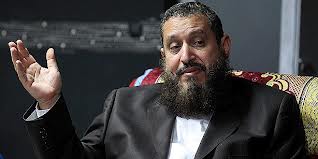 Egypt's biggest hardline Islamist Salafi party will not take up posts in a cabinet reshuffle expected next week, saying on Thursday that the proposed changes did not go far enough to fix the country's political crisis.
Egypt's biggest hardline Islamist Salafi party will not take up posts in a cabinet reshuffle expected next week, saying on Thursday that the proposed changes did not go far enough to fix the country's political crisis.
The reshuffle is seen as an attempt by President Mohamed Mursi to ease tensions with opponents that flared in November after a controversial presidential decree expanded his powers.
Political stability would help Egypt secure a much-needed $4.8 billion loan from the International Monetary Fund after the country failed this month to conclude a deal.
In a statement posted on its official Facebook page on Thursday, the Nour party said it would not take any of the new ministerial jobs, saying it wanted the change of the entire cabinet and not just a few ministries.
A presidential spokesman on Wednesday said the reshuffle will be limited and Prime Minister Hisham Kandil will stay.
"The limited ministerial changes expected to take place in the coming days will not offer a solution to the crisis and will not add anything new," Nour's statement read.
Nour, Egypt's second biggest Islamist group after the ruling Muslim Brotherhood, had joined liberal and leftist opposition groups in demanding Mursi change his whole government due to its failure to solve Egypt's economic and political problems.
Egypt's main liberal and leftist opposition bloc, the National Salvation Front (NSF), has called for a full cabinet reshuffle, although some of its members said they would not mind if Kandil stayed.
"I imagine the difficulty behind changing Hisham Kandil... is that no strong economic character will agree to be a prime minister in the middle of the political division currently present," Ahmed Fawzy, Secretary General of NSF member the Egyptian Social Democratic Party, told Reuters.
Many analysts say Mursi has failed meet his promises of a quick fix to some of Egypt's severe problems and refused to politically engage opposition, or even some allies and consultants, on important decisions.
On Tuesday, Mursi's legal adviser Mohamed Fouad Gadalla resigned in protest to what he said was Mursi's failings, sending him a long letter of criticism.



